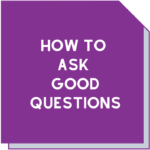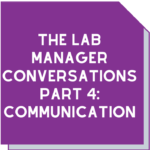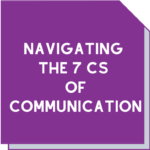Mind your language
 Back in the dark ages (the 1970s) there was a British sitcom called ‘Mind your language’ which was set in an adult education college.
Back in the dark ages (the 1970s) there was a British sitcom called ‘Mind your language’ which was set in an adult education college.
For those that missed this television gem, it focussed on an English as a Foreign Language class with an earnest teacher, struggling to teach a variety of international students the mysteries of the English language.
It was politically incorrect, showed the students as stereotypical examples of their various backgrounds and made masterful use of the single entendre.
In other words, it was pretty typical television for its time.
Television has come a long way since then and so (hopefully!) have we. However, minding your language is a good reminder for all of us that language isn’t just about words.
Many of us have become increasingly aware of the role body language plays in our communication (thanks COVID!). In fact, nonverbal signals, including facial expressions and body movements, make up a huge part of our daily communication with others.
Not only is this form of communication universal, often we don’t even know we’re doing it.
In some jobs like auditing, supervising, and managing people, its really important that you understand how communication works. You should be aware of body language and make sure you’re interacting seamlessly and with great effect.
Communication in the workplace
We’ve all been in meetings where one person is sitting back in their chair, arms crossed and looking unimpressed. This not-so-subtle display can make others feel uncomfortable but also clearly states that the person disagrees with the discussion without saying a word.
Similarly, someone standing with their hands on their hips or perhaps a little too close for comfort can make you feel intimidated or even confrontational.
Being able to read signals will enhance your workplace and personal relationships. It can also make you better able to manage your own nonverbal signals.
So how can you enhance your ability to read these signals?
Pay attention
By being aware and noticing other people’s unspoken behaviours, you will be able to improve your own. Watch the reactions of your audience when you’re speaking. And think about the way you’re sitting or standing. If you’ve been sitting in a relaxed manner and then cross your arms and lean backwards, you’ll see an immediate reflection of this in your audience. Relax, sit forward and break the tension.
Look for behaviours that are incongruent
Do their words match their nonverbal behaviours? For example, looking at the ground and frowning while saying they’re fine is a sure sign something else is going on.
Tone of voice
Your tone should match your message. If you want to show genuine interest, you should sound animated not monotone. Also, think about how you use emphasis on words when you speak. Try saying the sentence below with the emphasis on the word in bold:
I didn’t say you took my car
I didn’t say you took my car
I didn’t say you took my car
I didn’t say you took my car
I didn’t say you took my car
I didn’t say you took my car
I didn’t say you took my car
As you can see, even though the words are the same, the emphasis changes the meaning dramatically.
Good eye contact
Staring into someone’s eyes may be romantic if you’re with a partner but can be considered aggressive or intimidating in a workplace. Effective eye contact should feel natural and comfortable for both you and the person you’re speaking with.
Ask questions
If you’re confused by the message someone is conveying, don’t be afraid to clarify this. It’s possible they have something else on their mind, not at all related to what you’re discussing. Using reflective questions such as “So what you’re saying is…” will ensure you both understand what’s required.
Look at signals as a whole
If you place emphasis on just one signal, you could come up with an inaccurate conclusion about what a person is trying to say. For example, if someone is nodding, smiling, and agreeing with you but has their arms crossed, don’t assume they’re lying or feeling negative. They could just be cold!
Be aware of context
Body language will differ depending on where you are and maybe the cultural background of you and the others you are communicating with. A board meeting and a discussion with colleagues in the kitchen will have very different behaviours. Be sure to adjust your interpretation accordingly.
The COVID challenge
 You may have thought you were getting pretty good at nonverbal communication…and then along came COVID.
You may have thought you were getting pretty good at nonverbal communication…and then along came COVID.
Instead of face-to-face meetings, we’re all on Zoom or Teams. We’re wearing masks and keeping our distance.
This means that we need to focus on using verbal language and tone to express emotions that we would normally be able to see.
For example, saying ‘That makes me happy to hear’ and smiling is a very clear indication of how you feel. Asking questions is now even more important now to ensure that everyone is on the same page.
During online meetings, it’s common for participants to be distracted by their surroundings particularly if working from home. This can be perceived as boredom or disinterest, so we need to be focussed and mindful of our engagement.
Keep your video on, use minimal encouragers (nodding, smiling) and if possible, keep meetings short – long video meetings can be exhausting for everyone!
Also keep in mind that not everyone likes video communication. You could find that colleagues prefer one-on-one phone calls so you may need to adapt communication with team members.
Do be careful of text communication – it’s very difficult to communicate tone in a text and you could come across as being abrupt or rude without meaning to.
One final word…
There’s one other thing to keep in mind.
Covid meant that we all had a rough time. We’ve all had to change and adapt to strange and stressful circumstances.
We’re all human and we make mistakes. Be mindful and compassionate. Communicate with others with kindness and grace. Be open and honest in your own communications.
And you’ll find your superior communication skills will ensure you’re well prepared to launch your career and relationships into the next decade.
Download the article Mind your language






